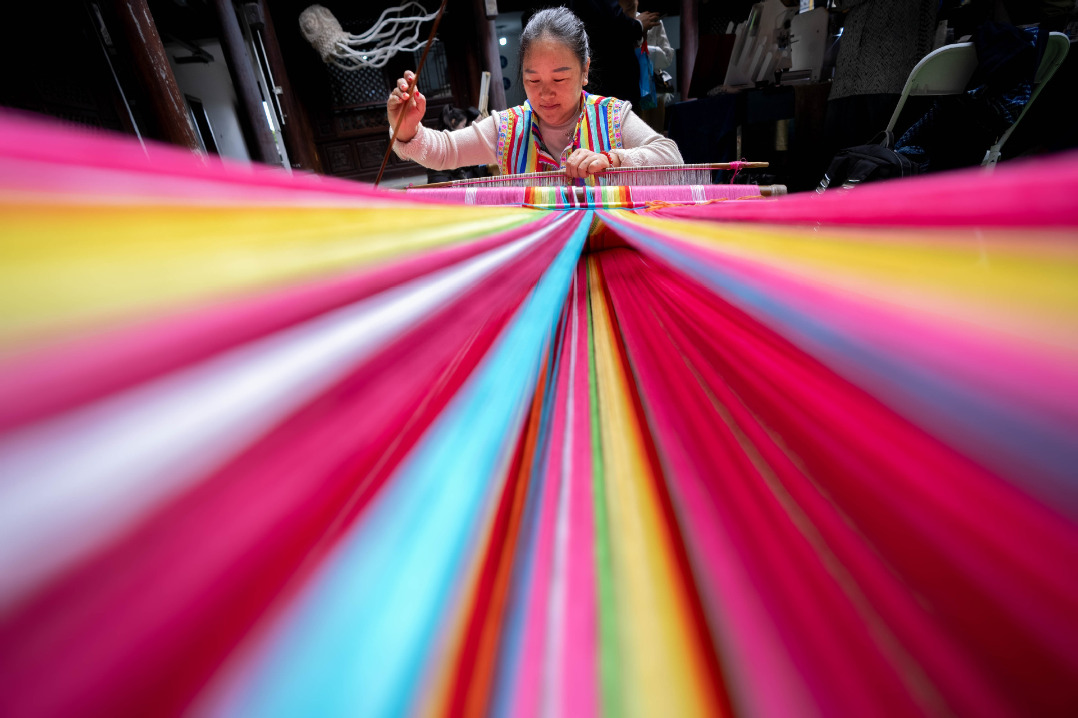Teens given a choice of healthy online viewing


Twenty-one online video platforms have started an anti-addiction system to protect adolescents and ensure their healthy development.
Fourteen online short video platforms, including Xigua Video, Bilibili and Pear Video, as well as four video streaming websites, including Tencent Video, iQiyi and Youku, started the anti-addiction system on Tuesday, the Cyberspace Administration of China said in a statement.
Three short video platforms - Douyin, Kuaishou and Huoshan - piloted the anti-addiction system in March.
Under the system, when a user opens a short-video app for the first time each day, a pop-up window will direct them to an adolescent mode - which would restrict access to content, duration of use and functions - if they select it.
The system can also experiment with automatically shifting users to the special mode after analyzing data such as location and user behavior, which is designed for left-behind youth in rural areas whose parents are working in cities, and who are taken care of by relatives, usually grandparents.
Under the system, video streaming websites are required to offer quality films and TV series, while short video platforms are asked to offer educational content, including history, traditional culture, painting and calligraphy, the administration said.
An unnamed official from the administration quoted in the statement said that since the system was introduced in March, around 460 million users have received daily alerts to switch to anti-addiction mode, and users chose the mode on 52.6 million visits.
The various platforms still have deficiencies in using technologies such as big data, artificial intelligence and facial recognition to accurately identify adolescent users, the official said.
The administration will continue to guide and organize platforms to strengthen technological research and development in the field to increase the accuracy, as well as provide more quality content, he said.
The official added that the anti-addiction system will also be used in online livestreaming platforms.
Zhi Zhenfeng, a researcher at Chinese Academy of Social Sciences, said smartphone-enabled entertainment from social messaging, gaming, livestreaming and short video has become a bigger part of the lives of China's youth, posing challenges to parents and authorities when it comes to protecting children from inappropriate content or addiction.
Video platforms need to strengthen monitoring of uploaded video content in accordance with the law and regulations before recommending them to users, he said.
- Chasing secrets of the universe on world's rooftop in SW China
- Xi sends congratulatory message to 7th China-Russia Energy Business Forum
- Genomic study links China's ancient hanging coffins to modern community
- China's scientific satellites yield key results, refreshing humanity's understanding of universe
- Aerial view of China's Huangyan Island in South China Sea
- Fact box: The development of the under-forest economy in China




































